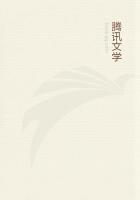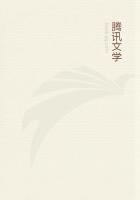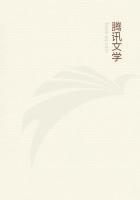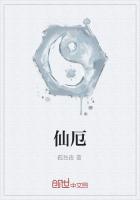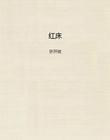"The summer flower is to the summer sweet Though to itself it only live and die."The reproof here is too sure; not always does it touch so quick, but it is not seldom manifest, and it makes exclusion a simple task.Inclusion, on the other hand, cannot be so completely fulfilled.The impossibility of taking in poems of great length, however purely lyrical, is a mechanical barrier, even on the plan of the present volume; in the case of Spenser's Prothalamion, the unmanageably autobiographical and local passage makes it inappropriate; some exquisite things of Landor's are lyrics in blank verse, and the necessary rule against blank verse shuts them out.No extracts have been made from any poem, but in a very few instances a stanza or a passage has been dropped out.No poem has been put in for the sake of a single perfectly fine passage; it would be too much to say that no poem has been put in for the sake of two splendid passages or so.The Scottish ballad poetry is represented by examples that are to my mind finer than anything left out; still, it is but represented; and as the song of this multitude of unknown poets overflows by its quantity a collection of lyrics of genius, so does severally the song of Wordsworth, Crashaw, and Shelley.It has been necessary, in considering traditional songs of evidently mingled authorship, to reject some one invaluable stanza or burden--the original and ancient surviving matter of a spoilt song--because it was necessary to reject the sequel that has cumbered it since some sentimentalist took it for his own.An example, which makes the heart ache, is that burden of keen and remote poetry:
"O the broom, the bonnie, bonnie broom, The broom of Cowdenknowes!"Perhaps some hand will gather all such precious fragments as these together one day, freed from what is alien in the work of the restorer.It is inexplicable that a generation resolved to forbid the restoration of ancient buildings should approve the eighteenth century restoration of ancient poems; nay, the architectural "restorer" is immeasurably the more respectful.In order to give us again the ancient fragments, it is happily notnecessary to break up the composite songs which, since the time of Burns, have gained a national love.Let them be, but let the old verses be also; and let them have, for those who desire it, the solitariness of their state of ruin.Even in the cases--and they are not few-- where Burns is proved to have given beauty and music to the ancient fragment itself, his work upon the old stanza is immeasurably finer than his work in his own new stanzas following, and it would be less than impiety to part the two.
I have obeyed a profound conviction which I have reason to hope will be more commended in the future than perhaps it can be now, in leaving aside a multitude of composite songs--anachronisms, and worse than mere anachronisms, as I think them to be, for they patch wild feeling with sentiment of the sentimentalist.There are some exceptions.The one fine stanza of a song which both Sir Walter Scott and Burns restored is given with the restorations of both, those restorations being severally beautiful; and the burden, "Hame, hame, hame," is printed with the Jacobite song that carries it; this song seems so mingled and various in date and origin that no apology is needed for placing it amongst the bundle of Scottish ballads of days before the Jacobites.Sir Patrick Spens is treated here as an ancient song.It is to be noted that the modern, or comparatively modern, additions to old songs full of quantitative metre--"Hame, hame, hame," is one of these--full of long notes, rests, and interlinear pauses, are almost always written in anapaests.The later writer has slipped away from the fine, various, and subtle metre of the older.Assuredly the popularity of the metre which, for want of a term suiting the English rules of verse, must be called anapaestic, has done more than any other thing to vulgarise the national sense of rhythm and to silence the finer rhythms.Anapaests came quite suddenly into English poetry and brought coarseness, glibness, volubility, dapper and fatuous effects.A master may use it well, but as a popular measure it has been disastrous.I would be bound to find the modern stanzas in an old song by this very habit of anapaests and this very misunderstanding of the long words and interlinear pauses of the older stanzas.This, for instance, is the old metre:
"Hame, hame, hame! O hame fain wad I be!"and this the lamentable anapaestic line (from the same song):
"Yet the sun through the mirk seems to promise to me -."It has been difficult to refuse myself the delight of including A Divine Love of Carew, but it seemed too bold to leave out four stanzas of a poem of seven, and the last four are of the poorest argument.This passage at least shall speak for the first three:
"Thou didst appear A glorious mystery, so dark, so clear, As Nature did intend All should confess, but none might comprehend."From Christ's Victory in Heaven of Giles Fletcher (out of reach for its length) it is a happiness to extract here at least the passage upon "Justice," who looks "as the eagle"that hath so oft compared Her eye with heaven's";from Marlowe's poem, also unmanageable, that in which Love ran to the priestess"And laid his childish head upon her breast"; with that which tells how Night,"deep-drenched in misty Acheron, Heaved up her head, and half the world upon Breathed darkness forth";from Robert Greene two lines of a lovely passage:
"Cupid abroad was lated in the night, His wings were wet with ranging in the rain";from Ben Jonson's Hue and Cry (not throughout fine) the stanza: "Beauties, have ye seen a toy, Called Love, a little boy, Almost naked,wanton, blind; Cruel now, and then as kind? If he be amongst ye, say; He is Venus' run-away";from Francis Davison:
"Her angry eyes are great with tears"; from George Wither:
"I can go rest On her sweet breast That is the pride of Cynthia's train";from Cowley:

